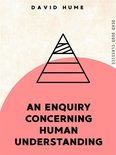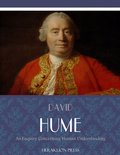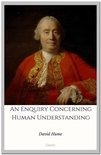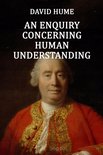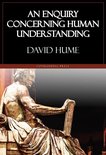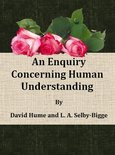An Enquiry Concerning Human Understanding
Afbeeldingen
Sla de afbeeldingen overArtikel vergelijken
Uitgever: Createspace Independent Publishing Platform
- Engels
- Paperback
- 9781500468576
- 10 juli 2014
- 72 pagina's
David Hume
(Bron: Wikipedia. Beschikbaar onder de licentie Creative Commons Naamsvermelding/Gelijk delen.)"
Samenvatting
Productspecificaties
Inhoud
- Taal
- en
- Bindwijze
- Paperback
- Oorspronkelijke releasedatum
- 10 juli 2014
- Aantal pagina's
- 72
- Illustraties
- Nee
Betrokkenen
- Hoofdauteur
- David Hume
- Tweede Auteur
- David Hume
- Co Auteur
- Onbekend
- Hoofdredacteur
- S R P
- Tweede Redacteur
- Andrea Gouveia
- Hoofduitgeverij
- Createspace Independent Publishing Platform
Overige kenmerken
- Extra groot lettertype
- Nee
- Product breedte
- 152 mm
- Product hoogte
- 4 mm
- Product lengte
- 229 mm
- Studieboek
- Nee
- Verpakking breedte
- 152 mm
- Verpakking hoogte
- 4 mm
- Verpakking lengte
- 229 mm
- Verpakkingsgewicht
- 109 g
EAN
- EAN
- 9781500468576
Je vindt dit artikel in
- Categorieën
- Taal
- Engels
- Boek, ebook of luisterboek?
- Boek
- Studieboek of algemeen
- Algemene boeken
Reviews
Negatief, positief, neutraal: we zetten een review altijd online. We controleren wel eerst of ’ie voldoet aan onze reviewvoorwaarden en niet nep is. We controleren ook of ’ie is geschreven door iemand die het artikel heeft gekocht via bol.com en zetten dit er dan bij. De controles gebeuren automatisch, al kijken er soms mensen mee. Bol.com betaalt niet voor reviews. Als een reviewer door een andere partij is vergoed, staat dit in de review zelf.
Negatief, positief, neutraal: we zetten een review altijd online. We controleren wel eerst of ’ie voldoet aan onze reviewvoorwaarden en niet nep is. We controleren ook of ’ie is geschreven door iemand die het artikel heeft gekocht via bol.com en zetten dit er dan bij. De controles gebeuren automatisch, al kijken er soms mensen mee. Bol.com betaalt niet voor reviews. Als een reviewer door een andere partij is vergoed, staat dit in de review zelf.
-
An Enquiry Concerning Human Understanding
Positieve punten
- Heldere boodschap
Geschreven bij Enquiry Concerning Human Understanding
Dit werk, gepubliceerd in 1748, zorgde voor de doorbraak van de Schotse filosoof David Hume. An Enquiry Concerning Human Understanding is een versimpelde versie van een deel van zijn hoofdwerk, A Treatise of Human Nature, welke eerder verscheen maar waarvan de receptie niet denderend was. Dit werk is in vergelijking met de Treatise veel leesbaarder en zijn belangrijkste ideeën komen er goed in naar voren. In dit werk formuleert Hume onder andere het probleem omtrent de logische status van inductie en komt hij met zijn ontdekking dat causaliteit niet waarneembaar is. Het is het werk dat Kant ''het licht zou hebben laten zien'' om de Kritiek van de Zuivere Rede te schrijven. Iedereen met filosofische aspiraties zou dit boekje gelezen moeten hebben.
Vond je dit een nuttige review?20 -
Charles Dickens
Positieve punten
- Rijk geillustreerd
Geschreven bij An Enquiry Concerning Human Understanding
Met deze prijs is klagen moeilijk. Toch is het volgens mij echt Hume die dit boek geschreven heeft, en niet Charles Dickens zoals in koeienletters op de voorkant vermeld staat. Verder prima.
Vond je dit een nuttige review?00
Kies gewenste uitvoering
Prijsinformatie en bestellen
Alle bindwijzen en edities (15)
-
0,99Direct beschikbaar
-
1,97Direct beschikbaar
-
2,99Direct beschikbaar
-
2,99Direct beschikbaar
-
0,99Direct beschikbaar
-
0,99Direct beschikbaar
-
1,00Direct beschikbaar
-
0,99Direct beschikbaar
-
0,99Direct beschikbaar
-
1,99Direct beschikbaar
-
2,23Direct beschikbaar
-
2,99Direct beschikbaar
-
9,992 - 3 weken
Levertijd
We doen er alles aan om dit artikel op tijd te bezorgen. Het is echter in een enkel geval mogelijk dat door omstandigheden de bezorging vertraagd is.
Bezorgopties
We bieden verschillende opties aan voor het bezorgen of ophalen van je bestelling. Welke opties voor jouw bestelling beschikbaar zijn, zie je bij het afronden van de bestelling.
Tooltip -
23,402 - 3 weken
Levertijd
We doen er alles aan om dit artikel op tijd te bezorgen. Het is echter in een enkel geval mogelijk dat door omstandigheden de bezorging vertraagd is.
Bezorgopties
We bieden verschillende opties aan voor het bezorgen of ophalen van je bestelling. Welke opties voor jouw bestelling beschikbaar zijn, zie je bij het afronden van de bestelling.
Tooltip -
12,95Uiterlijk 29 mei in huis
Levertijd
We doen er alles aan om dit artikel op tijd te bezorgen. Het is echter in een enkel geval mogelijk dat door omstandigheden de bezorging vertraagd is.
Bezorgopties
We bieden verschillende opties aan voor het bezorgen of ophalen van je bestelling. Welke opties voor jouw bestelling beschikbaar zijn, zie je bij het afronden van de bestelling.
Tooltip
Rapporteer dit artikel
Je wilt melding doen van illegale inhoud over dit artikel:
- Ik wil melding doen als klant
- Ik wil melding doen als autoriteit of trusted flagger
- Ik wil melding doen als partner
- Ik wil melding doen als merkhouder
Geen klant, autoriteit, trusted flagger, merkhouder of partner? Gebruik dan onderstaande link om melding te doen.

